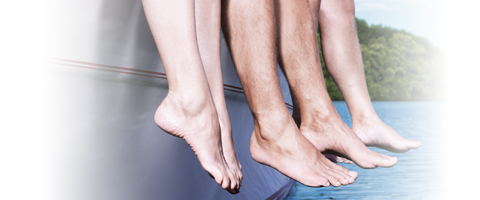Varicose veins are a common disease
Here you will find answers to your questions on varicose veins

Frequently asked questions
Why do varicose veins occur more often during pregnancy?
Varicose veins may develop during pregnancy or existing ones become worse, especially if the woman has a family predisposition.
The hormonal changes and increased strain experienced by pregnant women mean that varicose veins can develop more easily. The increase in the hormone progesterone is responsible for the connective tissue becoming looser and the vein walls less resistant, especially in the first few months of pregnancy. The veins expand so that they can be seen more clearly under the skin. In addition, the blood flow from the legs back to the heart is reduced, as the enlarging abdomen presses on the pelvic veins and increases the blood pressure in the leg veins below. Taken together, these factors allow new varicose veins to develop or make pre-existing ones worse. Fortunately, varicose veins can regress after birth, as the hormone situation and the pressure strain return to normal. For this reason, varicose veins should not be treated during pregnancy. It is worth waiting for some weeks after the baby is born to see whether the varicose veins regress.
Pregnant women are recommended to wear compression stockings to prevent varicose veins developing.
